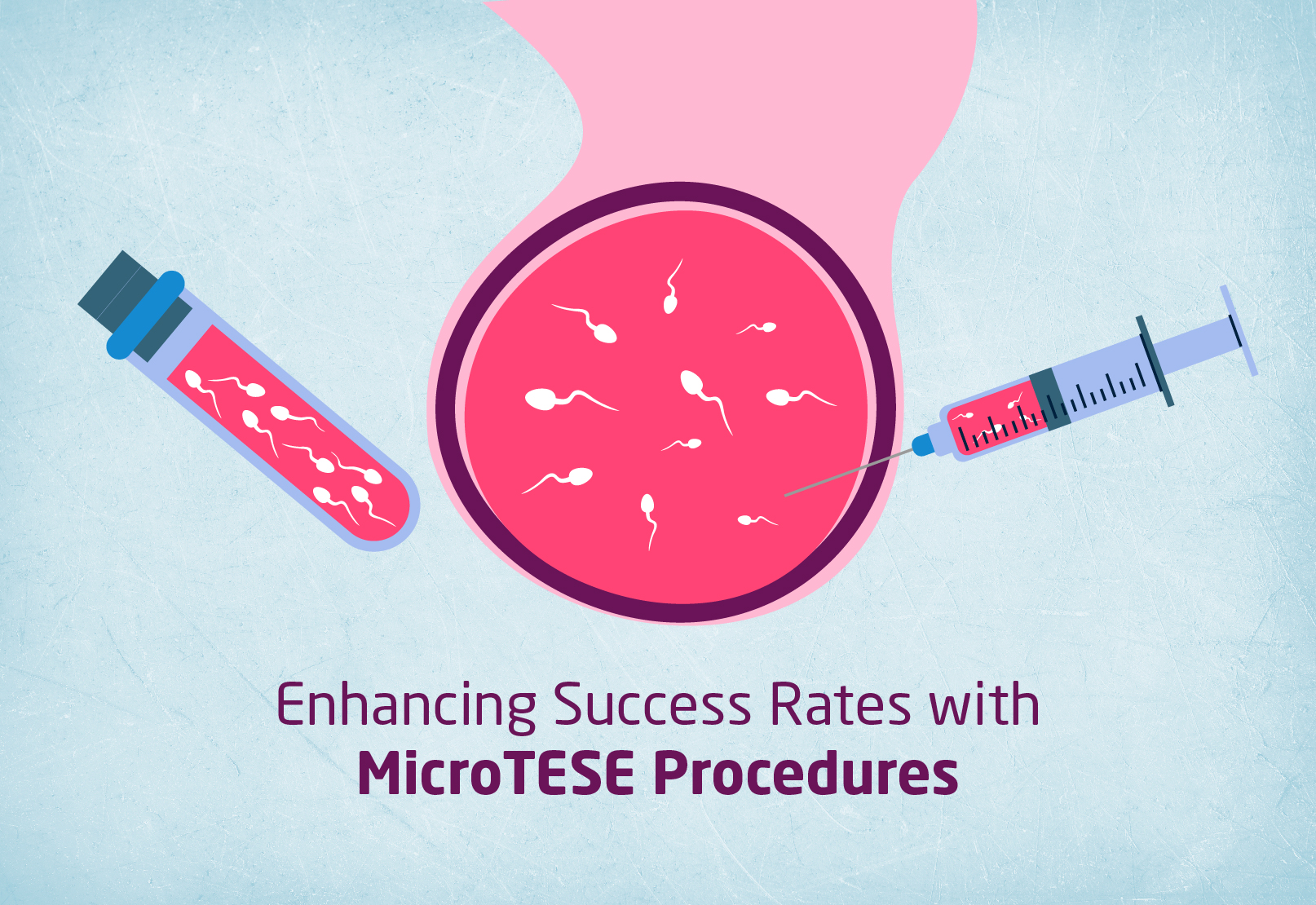Enhancing Success Rates with MicroTESE Procedures
MicroTESE procedures are creating hopeful opportunities for couples struggling with male infertility.
MicroTESE (Microdissection Testicular Sperm Extraction) is an advanced surgical procedure to retrieve sperm from the testes of men. Fertility experts with severe male infertility, specifically non-obstructive azoospermia (absence of sperms in the ejaculate).
It can happen because of a direct problem within the testis or insufficient production of essential hormones like gonadotropins, involved in spermatogenesis—the maturation process of sperm cells. MicroTESE is pivotal for couples who seek to achieve pregnancy via assisted reproductive technologies (ART) like IVF, ICSI, or more.
In most cases, micro TESE success rate is about 40-60% of microTESE procedures, which is quite promising. If you plan to use all the retrieved sperm for IVF, you might need more than one microTESE operation.
Let’s get to know more about the benefits, procedure, possible risks, and more.
What are the benefits of microTESE?
- High success rates: MicroTESE procedure usually has higher success rates in retrieving viable sperm in comparison to traditional methods. Its meticulous approach under an operating microscope enables precise identification and extraction from the testicular tissue.
- Minimal tissue trauma: The microdissection technique minimizes tissue trauma, preserving testicular function and reducing potential complications.
- Targeted sperm retrieval: Unlike conventional approaches, microTESE targets specific areas within the testes where sperm production can be higher, increasing the chances of successful retrieval.
- Enhanced IVF/ICSI success: Sperms retrieved via microTESE tend to be of higher quality, optimizing fertilization rates and embryo development during IVF or ICSI procedures.
- Psychological relief: For men facing infertility challenges, successful microTESE offers immense psychological relief and the opportunity to genetically contribute to their future children.
How is the microTESE procedure performed?
Here’s a closer look at the entire microTESE procedure to retrieve sperm from the testes.
- Preoperative preparation: Before the microTESE procedure, doctors advise comprehensive evaluations, including hormonal tests and ultrasound scans, assess fertility status and plan the procedure accordingly.
- Anesthesia: Doctors perform microTESE when the patient is under the effect of local anesthesia. This makes sure that the patient feels comfortable throughout the procedure.
- Surgical technique: Surgeons make a small incision in the scrotum to access the testes. Using high-powered microscopes, they meticulously examine and isolate sperm-containing tubules while minimizing disruption to surrounding tissue.
- Sperm extraction and processing: Samples retrieved during MicroTESE undergo a thorough evaluation in a laboratory setting. Further, fertility specialists only use the viable sperm for IVF, CSI or cryopreservation for future use.
- Postoperative care: Patients receive detailed postoperative care instructions, including pain management and antibiotic therapy to prevent infection. Follow-up appointments monitor recovery and assess ongoing fertility status.
This approach not only highlights the advanced capabilities of MicroTESE but also highlights its role in offering hope and solutions to couples experiencing infertility challenges.
What are the possible risks of microTESE surgery?
Just like any other minor surgical procedure, microTESE surgery also carries a few potential risks. Following are some risks related to MicroTESE:
- Minor infection or bleeding
- Mild pain for 2-3 days following the procedure
- Some signs of inflammation or discolouration of the scrotum
- Chances of minor skin infection around the scrotum
- Rare risk of testicle injury
Through careful preoperative assessment, precise surgical techniques, and thorough postoperative care, complications are minimal.
Trusting in the expertise of your healthcare team ensures you can face these challenges confidently, focusing on the positive outcomes that MicroTESE can bring to your journey toward parenthood. For a personal consultation with our experienced fertility doctors and to discuss your case in detail, get in touch at Ferticity IVF. To book an appointment, log onto https://ferticity.com/

